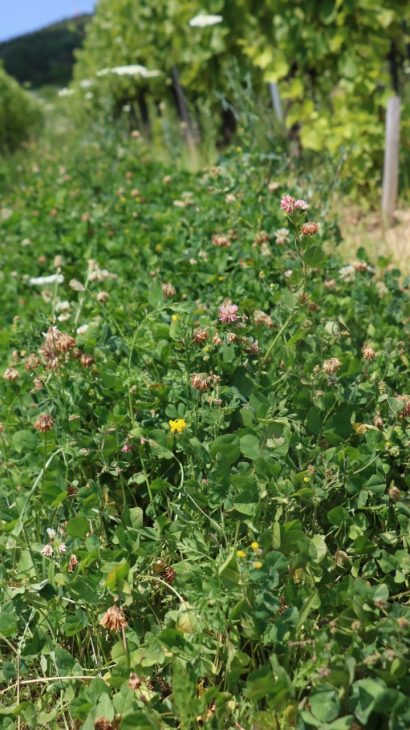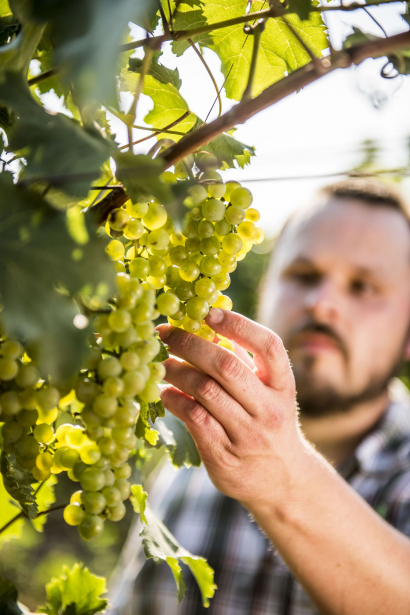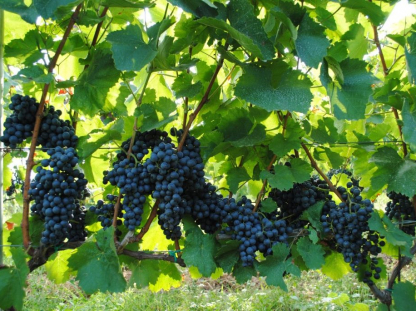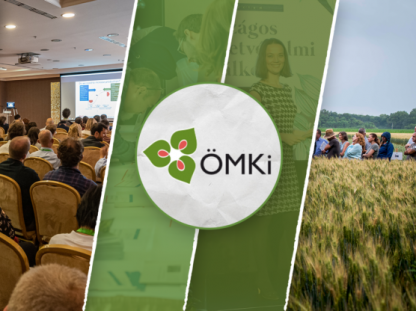In our on-farm research network for viticulture, we are developing cover plant seed mixtures comprising of indigenous species that provide protection against erosion and increase biodiversity. As part of this research project, we are investigating the effect of various soil care techniques on soil moisture.
Primary goal of the research
When growing ground covering vegetation in viticulture, it is reasonable to use a grass seed mix containing indigenous perennials, appropriate both for the technological potentials of vineries and the properties of the site. By using well selected species we are able not only to enhance the conservation value of the area, but we can also promote good soil structure (rooting types) and nutrient supply (leguminous species), and we can also provide a habitat for beneficial living organisms as well (e.g. predatory mites, spiders).
Cover vegetation increasing biodiversity
- Using a properly selected soil care technology, we can contribute to the protection of our soils and maintain their productivity.
- By using well selected plant species for species-rich inter-row covering we can increase both the conservation value and the biodiversity of area.
- By using living mulch, we provide a habitat for beneficial living organisms as well.
- This technology can be used in areas other than viticulture. it can be implemented with success in integrated farm systems to increase their sustainability.
Our results
- Since the start of the experiments in 2012, over twenty vineyards have joined the project in seven of Hungary’s wine regions. The importance and relevance of this issue is reflected by the fact that not only organic farms but growers using integrated farming also joined.
- We cooperated successfully with the Department of Ecology at the University of Debrecen and the Research Institute for Viticulture and Winery in the Tokaj region.
- As a result of this on-farm experiment we determined indigenous plant species that can successfully survive for a number of years in Hungarian vineyards, effectively prevent erosion, increase biodiversity, and have a positive impact on the water supplies in the soil.
- In addition to the species composition, ensuring adequate vegetation cover is also essential, and we have established a good practice for this. During our soil moisture measurements we revealed from which soil depths the species-rich flora cover uses water.
- As a recognition of our work in development, more and more vine-growers are starting to rely on the results of our experiments and successfully find an alternative for their vineyards to replace one-sided mechanical cultivation.
- Under the RELACS international projects, which started in 2018, the ecological protection of grapevines was also included in the research topics, in which we investigate new test products to be used in organic farming, suitable to replace copper-based plant protecting products.










.jpg)





